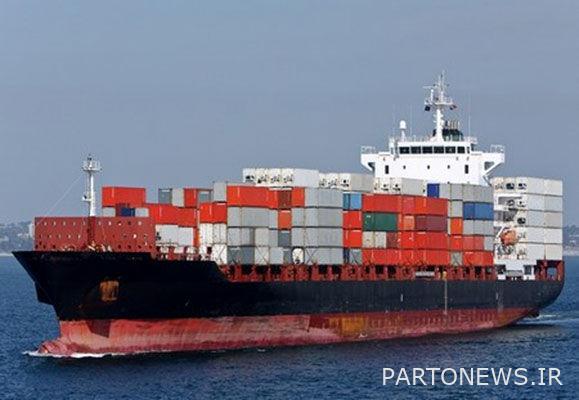Significant reduction in international freight transport in Russian ports

According to an IRNA report from Reuters on Wednesday; The world’s largest container shipping lines, including the Danish Maersk, the French CMECGM and the Swiss MSC, shut down their ships in and out of the West following the imposition of extensive Western sanctions after the start of the Ukraine war on February 24. Russia’s commercial ports and maritime terminals have been suspended.
The head of the Aquarius Group, Russia’s largest container operator, predicted that the departure of the major container shipping companies, which transport the largest amount of manufactured and manufactured goods in the world, would be important for the continuation of international trade relations. No alternative to these companies will soon be found, leading to a significant reduction in Russian goods and trade shipments.
“From May onwards, we expect shipments to Russian ports in northwestern Russia, including St. Petersburg and Ost-Luga, and from these ports around the world, if there is no alternative in the market,” said Dmitry Pankov, CEO of the Aquarius Group. Reduce by 90 to 95%.
In addition to operating cargo and commercial terminals in northwestern and eastern Russia and the Black Sea port of Novorossiysk, Transporter, the owner of Global Ports, also owns Transcantin, the country’s largest cargo container operator.
According to Pankov; Losses of ports in Russia’s Far East, Black Sea and Azov Seas will be less than the shutdown of major container shipping companies due to their lower share of freight traffic compared to northwestern Russia and the emergence of new players in these areas. Was.
Without mentioning the names of these companies, he said that some came from Turkey.
Alexander Isurin, CEO of Trans-Container, said that the departure of container shipping companies would lead to a shortage of containers in the Russian market cycle.
He predicted that about 30% of the containers in the Russian market would go out of circulation, adding that the market should be a replacement for nearly 300,000 containers. Russia’s transportation market is unlikely to make up for all of this, and the shortage of the world’s largest container shipping lines, which have suddenly decided to cease operations in the country. Russia may have no choice but to cooperate with smaller container shipping companies that are just entering the Russian market. Chinese companies; The Japanese and Koreans can choose their position.
According to IRNA from Punch website; The International Monetary Fund predicts that rising costs of transporting goods by sea and shipping, as a result of the current war between Russia and Ukraine, will exacerbate inflation in the world economy.
In an analysis entitled “How Rising Shipping Costs Raise Global Commodity Prices,” the Washington-based WTO said that the cost of transporting a container on the Earth’s trade routes over the past 18 months , Has increased sevenfold.
More than 80 percent of the world’s merchandise is transported by sea, most of which are transported in containers in thousands on the decks of some of the largest vessels ever built.
Rising demand Following the implementation of extensive demand-stimulating programs during long quarantine periods, the strength of supply chains has weakened, and in addition to delaying the delivery of goods to consumers, the cost of transporting them has increased. In the 18 months to March 2020, these challenges have led to a sevenfold increase in the cost of transporting a container by ocean. The cost of transporting bulk goods has gone even higher.
Our recent research shows that the inflationary impact of this increase in costs will remain in the global economy until the end of the year, and an increase in shipping costs in 2021 is likely to increase inflation to 20% by 2022.
A review of data from 143 countries over the past 30 years shows that shipping costs have been a major factor in global inflation, with doubling freight rates pushing inflation up nearly 0.7 percent.
More importantly, the effects of this inflation on the economies of the world are stable, peaking after one year and lasting up to 18 months. Thus, the increase in shipping costs in 2021 may increase inflation by 2022 by nearly 1.5 percent.
The global agency added that rising inflation in countries that import more of their consumer goods is more closely linked to global supply chains, landlocked and without access to the high seas, or has low incomes, or Island countries will have a wider impact, predicting that inflation due to rising shipping costs will intensify in 2022 and will create new difficulties for the world’s central banks.
Russia launched a military operation in the eastern European country on February 24 following provocative actions by Washington and its allies in Ukraine.
European Economic Commissioner Paolo Gentiloni has warned that the impact of Russia’s war on Ukraine on food security could have “significant consequences” for African countries that rely on grain imports.
Gabriela Butcher, executive director of Oxfam International, told a news conference on March 22 that the Ukraine crisis, which has caused so much suffering in the country, has exacerbated the situation around the world.
About a quarter of the world’s wheat is supplied by Russia and Ukraine, and 40 percent of Ukraine’s wheat and corn are exported to the Middle East and Africa.
East African countries also import 80 percent of their wheat from Ukraine and Russia, and wheat and its products make up one-third of the region’s average national grain consumption.
Earlier, World Trade Organization (WTO) Director-General Nguyen Akenjo Iwehla warned that the Ukraine conflict was having a major impact on food prices and famine, and that the Ukraine war could lead to food riots in poor countries.
He warned food-producing countries against hoarding of goods, saying it was important to avoid repeating the Covid-19 epidemic experience, noting that rich countries were hoarding large volumes of vaccines during the Corona epidemic.

